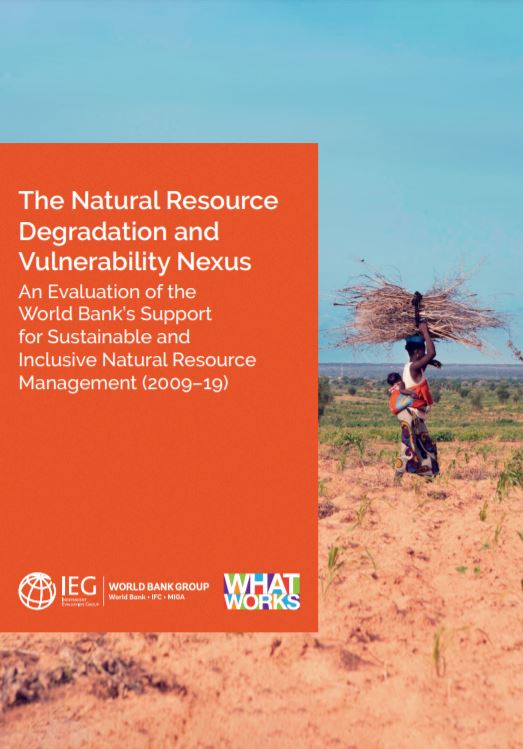Many of the world’s poor people depend on natural resources for their well-being. Four-fifths of the world’s poor people live in rural areas, and most rural poor people depend on natural resources for their livelihoods. This evaluation assesses how well the World Bank has addressed natural resource degradation to reduce the vulnerabilities of resource-dependent people.
This evaluation focuses on natural resources that are critical for the livelihoods and welfare of vulnerable people who depend on them. Such resources include soil and land, local forest resources, groundwater, and small-scale fisheries. The evaluation excludes issues that pertain to the global commons (such as global deforestation, biodiversity, air pollution, and marine health) because these issues have been or are scheduled to be covered in other Independent Evaluation Group evaluations.
The evaluation uses a mixed methods approach that draws on a range of evidence to derive explanatory factors and conclusions. The methods include structured literature reviews, a global data analysis, geospatial analyses, interviews, portfolio review and analysis, and comparative case studies. To assess the relevance of the World Bank’s approach, the evaluation identifies “nexus countries,” which are those with high resource degradation and high resource dependence by rural poor people.
